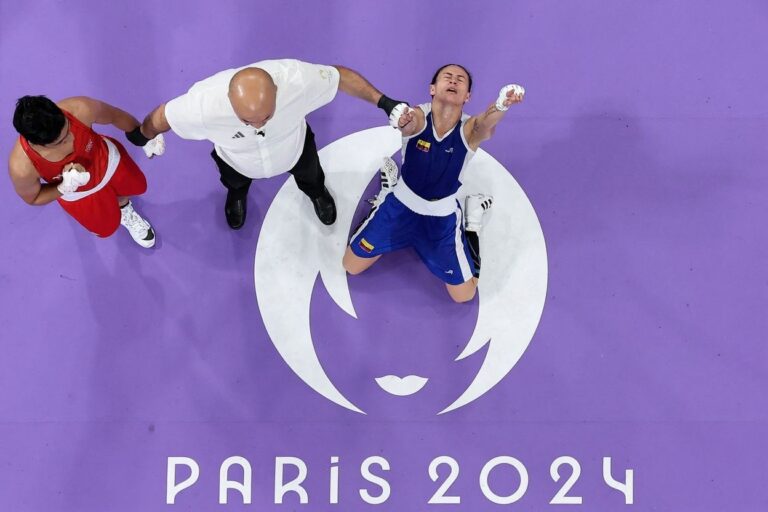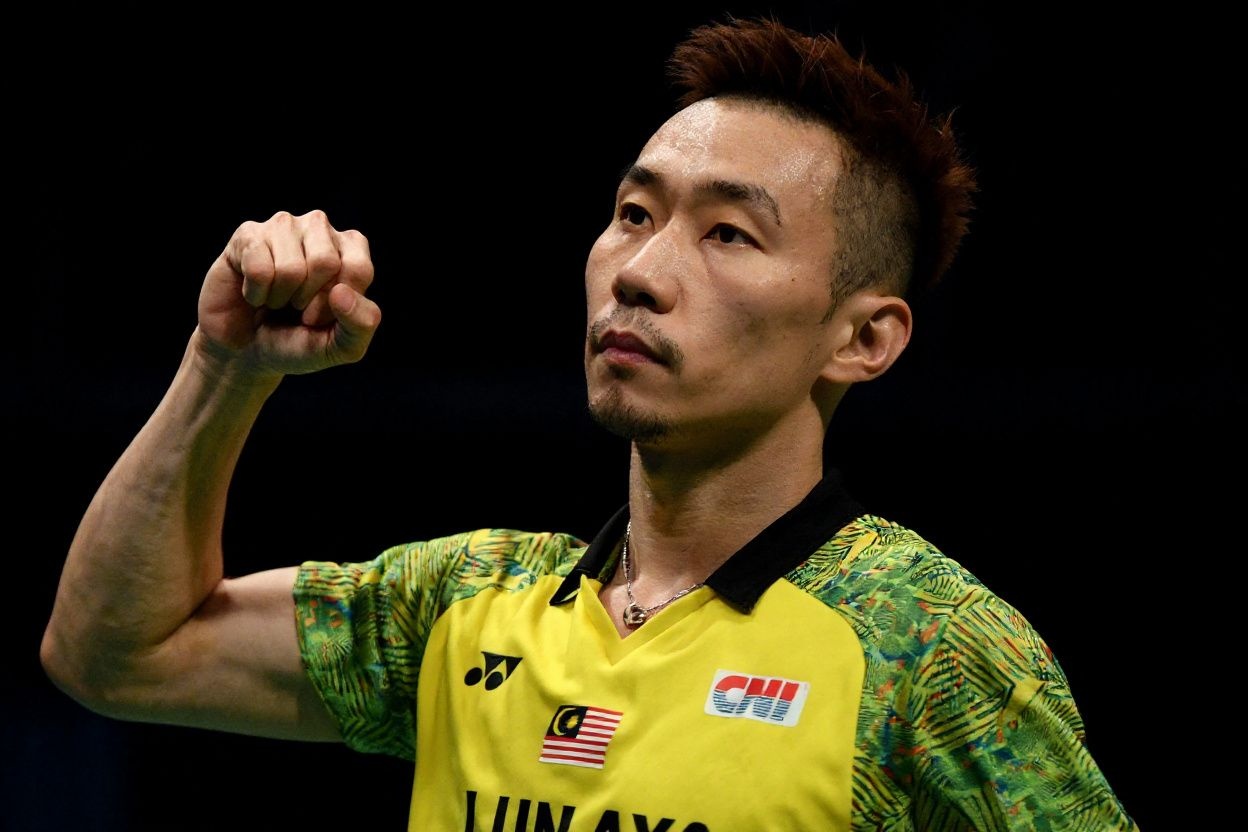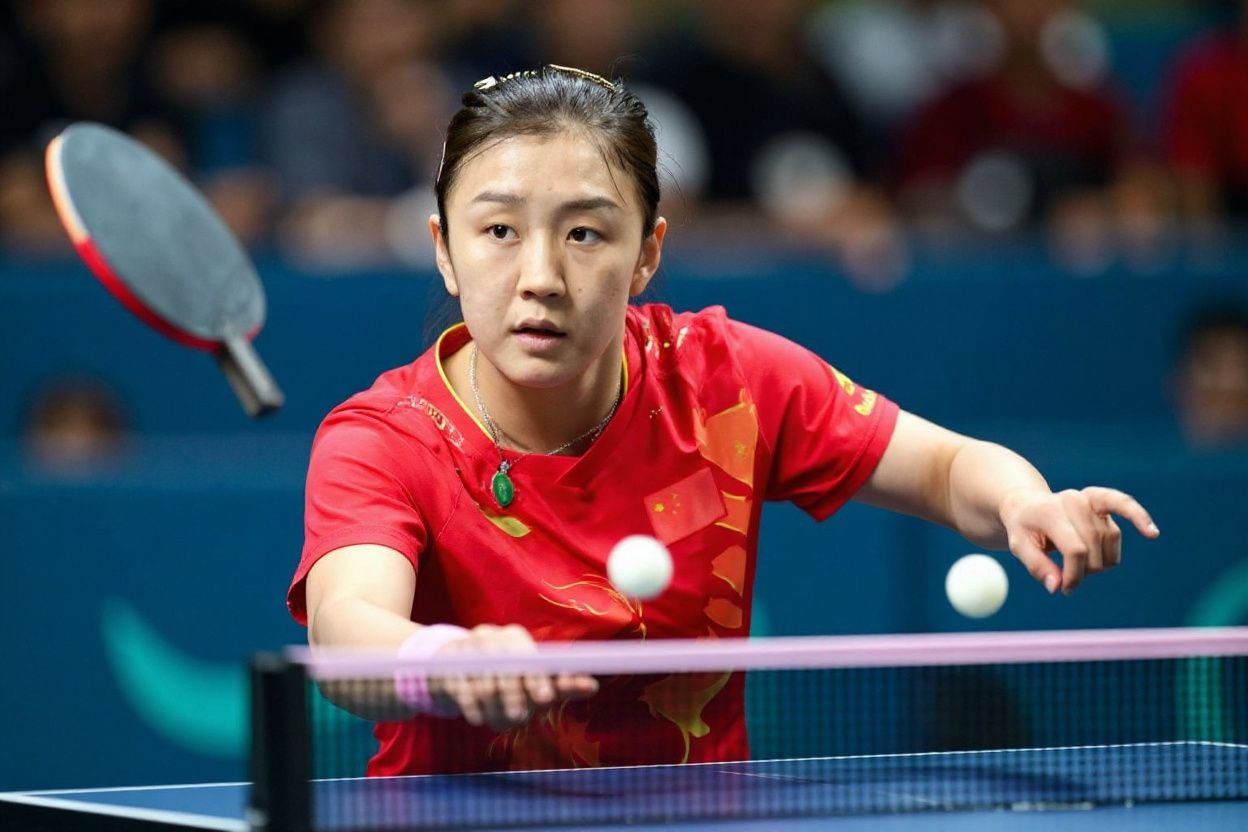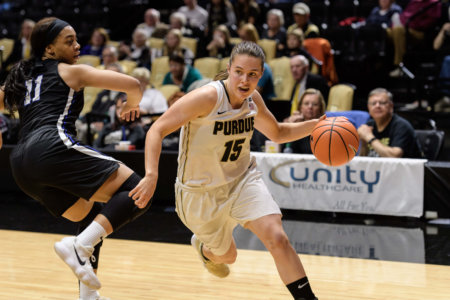
The Paris 2024 Olympics are in full swing.
32 sports will be crammed into 17 days of jam-packed action, with skateboarding, surfing, and climbing making their second appearances since the Tokyo 2020 Olympics.
With the world’s eyes turned to the biggest sporting event of recent times, many are eager to see their nation’s representatives onscreen. These athletes are their country’s pride, even more so if they’re representing their national sport in the Olympics.
 Lee Chong Wei of Malaysia is famous for his incredible badminton career but even better-known for being the pride of the nation.
Lee Chong Wei of Malaysia is famous for his incredible badminton career but even better-known for being the pride of the nation.
National sport: A country’s pride
Over the years, some countries have taken to adopting a national sport. Some are officially established by the country’s government, while others are generally accepted due to their popularity or athletes’ prowess.
For example, badminton is the national sport of Indonesia, but many associate it with Malaysia, thanks to Lee Chong Wei.
The former professional badminton player dominated the top ranks throughout his career, owning three consecutive Olympic silver medals and being inducted into the Badminton World Federation’s Hall of Fame. He’s even described as a national hero in Malaysia, and earned the title of Datuk, an honourary title conferred by the King.
But despite Malaysia dominating the international badminton stage with new contenders such as Lee Zii Jia, Aaron Chia, Soh Wooi Yik and more, badminton isn’t actually the country’s national sport. It’s sepak takraw, a team sport played with a rattan ball similar to volleyball, where players only use their feet, shoulders, chest, and head to send and receive. The sport can be traced back to 15th century Malaysia and its neighbouring countries, and is a large part of Malaysia’s cultural identity.
Like Malaysia, many other countries have their own national sports, even if they aren’t played on international stages like the Olympics. These sports serve as symbols of pride and may even reflect the country’s history and culture – just think of Canada, for example, and you may think of ice hockey, or cricket with India.
Let’s take a look at some popular countries and their national sport.
 Football is so important in the UK that even government officials want to be a part of it.
Football is so important in the UK that even government officials want to be a part of it.
Countries and their national sport
While some of these countries may not have an official national sport by law, they are still known to have made their mark in the sport’s history.
UK
The British love their sports, but football is definitely a sport they are well-known for. Manchester United, Arsenal, and Chelsea have massive international fan bases, with people tuning in worldwide to watch their matches. Star athletes like David Beckham, Wayne Rooney, Michael Owen, and more are household names when it comes to talking about football.
But in reality, the national sport of the UK is cricket. For centuries, cricket has been an integral part of English culture and remains one of the country’s most popular sports other than football. From the 16th century, the sport has been a staple of English summertime, which gave it an edge over football – it had history and prestige that football couldn’t match.
Of course, not every British person agrees; many prefer to list football as their national sport instead due to its popularity.
The University of Nottingham was named Sports University of the Year and top University in the UK for team sports by The Times and The Sunday Times Good University Guide 2024. As of the Paris 2024 Olympics, a total of six individuals from the university, including current students, alumni, and associates, are representing Great Britain and Germany in various events.
Australia
Australian Rules Football is considered the country’s national sport, and locals refer to it as “footy.”
While the game is similar to American football, it has significant differences — Australian Rules is played on a large oval-shaped field with 18 players on each team, whereas American football is played on a rectangular field with only 11 players per team. Scoring and game duration vary too.
Australia also has a long, successful history with cricket. Some consider it a national sport alongside Australian Rules Football, as Australia had a cricket team before it became a nation. In fact, some claim that the office of the captain of Australia’s cricket team is considered only second in importance to that of the Prime Minister.
The University of Queensland‘s Sport and Recreation Precinct spans more than 35 hectares, where over 3,200 students, 35 sporting and college clubs, and dozens of community and school groups use the Precinct’s facilities each week. For the Paris 2024 Olympics, 26 people have been selected for the Australian Olympic and Paralympic squads.
US
While baseball is not a law-designated national sport in the US, it has been part of the quintessential American experience for years. It is constantly referred to as “America’s favourite pastime,” and is a cornerstone of American childhood and identity.
But in recent years, American football has seemed to be the sport of choice for the locals.
This survey about sports fandoms in the US resulted in 57% of its participants saying that American football is the sport for those in the US, while 27% said baseball and only 8% said basketball. The annual Super Bowl draws an average of 112 million viewers a year, with iconic halftime shows featuring pop stars and celebrities like Rihanna, Taylor Swift, Snoop Dogg, and more.
The University of Florida was ranked #1 by college ranking site Niche.com for being the best college athletics in America. At the Tokyo 2020 Olympics, 32 Gators from 16 countries competed in eight sports, bringing home 17 medals. As of the Paris 2024 Olympics, 41 Gators are representing 21 countries in various sports.
 Fun fact, the first ice hockey pucks were made of cow dung.
Fun fact, the first ice hockey pucks were made of cow dung.
Canada
Other than maple syrup and snowy mountains, Canada is also known for its ice hockey, which is its national sport, as decreed by the government. After all, it’s where the sport originated from – the indigenous folk played a sport similar to modern-day ice hockey, and many regard it as the forerunner of ice hockey.
This Reddit user describes hockey in Canada as “a cultural thing.” He says, “The youth hockey system in Canada is far larger than anywhere else. Pretty much everyone in the country is near a hockey rink, and everyone knows people who played growing up.”
Whether you’re into ice hockey or not, if you’re looking for a university that boasts Olympian-level athletes, check out the University of British Columbia. For the Paris 2024 Olympics, they’ve got more than two dozen UBC Thunderbirds, past and present, ready to step up and represent their countries.
New Zealand
Rugby is the national sport – and the national obsession – of New Zealand. As the locals say, no part of the New Zealand landscape is complete without a set of rugby goalposts. Even as a tiny country, it’s one of the best sporting nations in the world.
English settlers and students first introduced the sport to locals in the 1870s. It quickly grew in popularity, with the first provincial rugby union formed in Canterbury within the same decade. By the early 20th century, it had become a part of New Zealand’s cultural identity, with the national rugby union team, the All Blacks, achieving tremendous success on the international stage.
The Auckland University of Technology is one of New Zealand’s premier universities for sports studies, ranking 28th globally in the 2024 QS World University Rankings by Subject. For the Paris 2024 Olympics, five of AUT’s current students and alumni are representing Team New Zealand, while one will be representing Team Samoa.
 There are 40,000 professional table-tennis in China players paid by the government to practice full-time.
There are 40,000 professional table-tennis in China players paid by the government to practice full-time.
China
China is known to be a top contender in all major Olympic sports, such as badminton, basketball, martial arts, swimming, and more. Many assume the country’s national sport is related to martial arts, but the real answer is that China has no national sport – perhaps they excel in so many that it’s impossible to choose.
But if you ask ChatGPT what China’s national sport is, it will reply with table tennis; no doubt this has fueled many other articles online that say the same.
True enough, China has dominated the table tennis scene for years, hosting and participating in major tournaments such as the China Open, T2 Diamond, and the World Table Tennis Championships. Chinese table tennis legend Liu Guoliang even invented a new grip – the reverse penhold backhand – that Chinese teams still use today.
There are seven established sports universities in China, with the top ranked school being Beijing Sport University. It is the only university in China with a Category I discipline of sport science, training both local and international students to become outstanding athletes. In the last four Olympic Games, teachers and students brought home a total of 30 gold medals, 16 silver medals, and 9 bronze medals.
Japan
Baseball is extremely popular in Japan, with a massive, loyal following and a very competitive scene. But despite its fame, it’s not the country’s national sport – sumo is. It’s a style of Japanese wrestling, and is played as a highly ritualised toppling match where opponents have to force each other out of a circle.
Sumo originated in ancient Japan, mostly as performances to entertain Shinto deities, government officials, or the general public. It was said that the powerful display of strength would encourage the gods to bless them with a good harvest.
Professional sumo wrestling only really started gaining publicity around the 1600s when public matches became available. The sport hasn’t changed much over the years – each wrestler starts a match by rinsing their mouth with water and tossing salt into the ring, akin to a purification ritual.
Nippon Sport Science University (Nittaidai) in Yokohama, Japan, is known for the many famous athletes among its alumni. The university has produced 137 Olympic and Paralympic medallists, which accounted for 25% of Japan’s medals in the Olympic Games since the 1952 Helsinki Games.
 Taekwondo is one of the two martial arts to be included in the Olympics.
Taekwondo is one of the two martial arts to be included in the Olympics.
South Korea
The national sport in South Korea is taekwondo, a Korean martial art with a heavy emphasis on kicking.
Its roots go back to the 1940s, when various Korean martial artists blended the indigenous Korean fighting styles of taekkyeon, gwonbeop, and subak, with influences from foreign martial arts, such as karate and Chinese martial arts. It started out as a form of self-defense, and is now an internationally-recognised sport with its own place in the Olympics.
Taekwondo is so valued in South Korea that there are even universities offering a three-year bachelor’s degree specialising in the sport. Yong-in University, Youngsan University, and the Korea National Sport University all offer taekwondo programmes.
Korea National Sport University (KNSU) in Seoul is the only national sport university in South Korea. It offers a variety of sports degrees from undergraduate to doctoral levels and has produced many outstanding sports leaders, as well as elite athletes and coaches of world-class calibre. Notable alumni include two-time Olympic short track speed skater champion Shim Suk-hee, and Lee Seung-hoon, the first and only Asian speed skater to win two Olympic medals in the 5,000 metres and the 10,000 metres speed skating.










